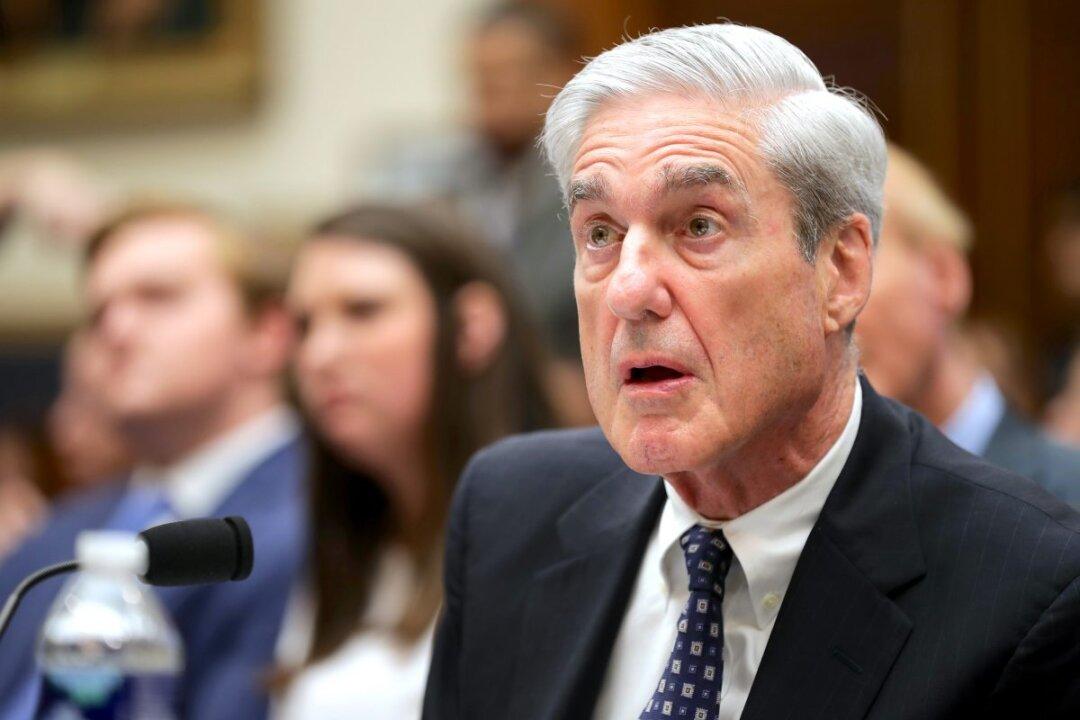Former special counsel Robert Mueller’s investigation into Russian meddling of the 2016 presidential elections cost a total of nearly $32 million, according to the Department of Justice (DOJ).
A new spending report (pdf) filed by the department on Aug. 2 shows $6.6 million was spent on the special counsel investigation in the last eight months of the probe through to the end of May 2019. Of that, $4.1 million was spent by the special counsel office, while $2.4 million was incurred by the DOJ to support Mueller’s work.




